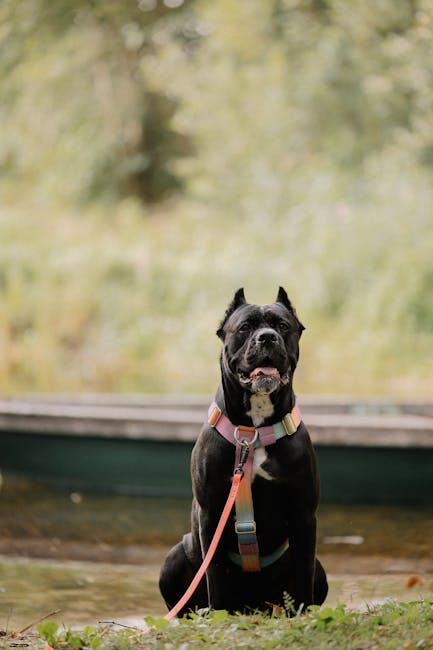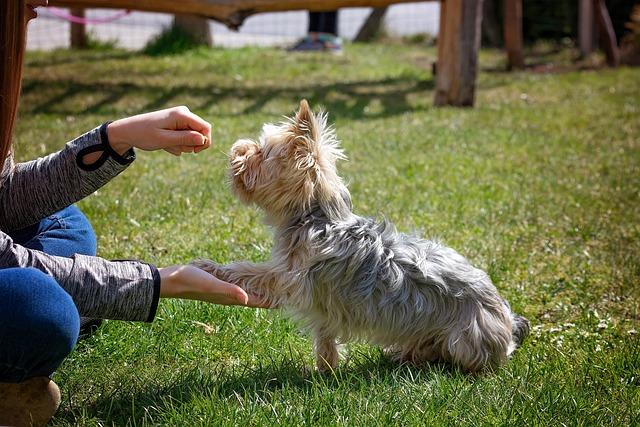Are Certain Breeds Predisposed to Aggression

In recent years, the topic of canine aggression has sparked lively debates among dog owners, breeders, and animal behaviorists alike. As a beloved companion to millions of households, understanding the factors that contribute to a dog’s behavior is crucial for fostering harmonious human-animal relationships. One of the most pressing questions in this discourse is whether certain breeds are predisposed to aggression. Are some dogs naturally more inclined to exhibit aggressive behaviors, or do external factors play a more significant role? In this article, we will delve into the complexities of canine aggression, exploring genetic, environmental, and social influences to shed light on whether breed truly determines behavior. By examining scientific studies and expert opinions, we aim to provide a comprehensive and balanced perspective on this intriguing topic, helping readers navigate the nuances of canine temperament with a friendly and open mind.
Understanding Breed-Specific Traits and Aggression
When exploring the traits inherent to specific dog breeds, it’s essential to recognize that genetics play a significant role in shaping a dog’s behavior, including potential aggression. However, attributing aggressive tendencies solely to breed can be misleading. Various factors contribute to a dog’s demeanor, such as:
- Environment: The surroundings and conditions in which a dog is raised have a profound impact on their behavior. A nurturing and supportive environment can mitigate innate aggressive tendencies.
- Socialization: Proper exposure to different people, animals, and situations from a young age can help prevent fear-based aggression.
- Training: Consistent and positive reinforcement training methods can teach dogs to respond calmly to various stimuli.
While certain breeds might exhibit traits like territoriality or protective instincts more prominently, it’s crucial to avoid blanket assumptions about aggression based on breed alone. Understanding these traits within the context of each individual dog’s life experiences can lead to more compassionate and effective interactions.

The Role of Genetics in Canine Behavior
In the intricate tapestry of canine behavior, genetics plays a pivotal role in shaping how dogs interact with their environment and those around them. While it’s a common misconception to label certain breeds as inherently aggressive, genetics does contribute to specific behavioral tendencies. Breed predispositions are more about instinctual behaviors that were historically advantageous. For instance, breeds like the Border Collie are known for their herding instincts, which stem from generations of selective breeding.
- Protective instincts in breeds such as the German Shepherd can sometimes be misinterpreted as aggression.
- Territorial behaviors in dogs like the Rottweiler are often a result of their historical role as guard dogs.
- High prey drive in breeds like the Greyhound can lead to chasing behaviors.
It’s essential to recognize that while genetics can influence behavior, they don’t seal a dog’s fate. Training, socialization, and environment play significant roles in how these genetic predispositions manifest. Understanding the genetic background of a breed can aid owners in providing the appropriate training and care to ensure a well-adjusted companion.

Training and Socialization: Key Factors in Temperament
When it comes to shaping a dog’s temperament, training and socialization play pivotal roles. While genetics may set the stage, these environmental factors are the tools with which you sculpt the behavior of your canine companion. From an early age, exposing your dog to a variety of experiences can foster a well-adjusted temperament. Here are some critical aspects to consider:
- Early Exposure: Introducing puppies to different environments, people, and other animals can help them develop confidence and reduce fear-based aggression.
- Consistent Training: Implementing a consistent training routine with positive reinforcement techniques encourages desirable behaviors and strengthens the bond between owner and pet.
- Understanding Body Language: Learning to interpret your dog’s signals allows for better communication and can prevent misunderstandings that may lead to aggression.
In essence, while some breeds may have a natural inclination towards certain behaviors, the influence of training and socialization cannot be overstated. By investing time and effort into these areas, pet owners can nurture a temperament that is friendly and adaptable, regardless of the breed’s predispositions.

Choosing the Right Breed for Your Lifestyle
When considering which dog breed best fits your lifestyle, it’s essential to understand that behavior, including aggression, is influenced by a combination of genetics, training, and environment. While some breeds may have a reputation for being more aggressive, it’s crucial to approach these generalizations with caution. Aggression is not a breed-specific trait; rather, it’s often a result of circumstances and upbringing.
- Training and Socialization: Early and consistent training can greatly influence a dog’s temperament. Proper socialization from a young age can mitigate aggressive tendencies, regardless of breed.
- Environment: Dogs raised in stressful or abusive environments may exhibit aggressive behavior. A loving and stable home can help foster a gentle disposition.
- Breed Characteristics: Some breeds are naturally more protective or territorial, which can sometimes be mistaken for aggression. Breeds like Rottweilers, Doberman Pinschers, and German Shepherds are often labeled as aggressive but can be loyal and gentle companions with the right care.
Ultimately, the best way to ensure a well-behaved pet is to invest time in understanding your dog’s needs and characteristics, providing training, and creating a nurturing environment. Every dog is unique, and with the right approach, any breed can thrive in a loving home.
Closing Remarks
while certain breeds may have characteristics that can influence behavior, it is essential to recognize that aggression is not solely determined by genetics. A variety of factors, including environment, training, and socialization, play significant roles in shaping a dog’s temperament. Responsible ownership and informed breeding practices can help mitigate potential aggressive tendencies, ensuring that dogs of all breeds can thrive as beloved companions. By fostering understanding and empathy towards our canine friends, we can create a harmonious coexistence that benefits both humans and dogs alike. Remember, each dog is an individual, and with the right approach, any breed can become a gentle and loving member of the family.



